11 Best Herbal Teas For Constipation
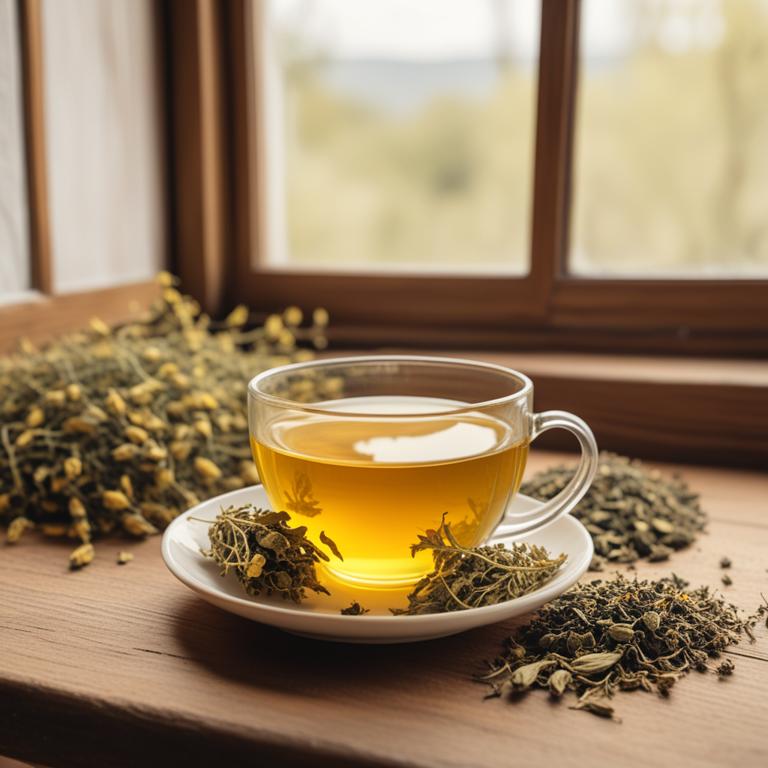
Herbal teas for constipation are a natural remedy used to treat and alleviate symptoms of constipation, which is a condition characterized by difficulty in passing stools or having infrequent bowel movements.
These herbal teas offer numerous benefits, including gentle and soothing effects on the digestive system, promoting regular bowel movements, and reducing symptoms of bloating, cramps, and discomfort.
Some popular herbal teas used to treat constipation include peppermint tea, which relaxes the muscles in the digestive tract and eases symptoms; chamomile tea, which calms the nervous system and promotes digestion; dandelion tea, which stimulates bowel movements and improves liver function; licorice root tea, which soothes the digestive tract and reduces inflammation; ginger tea, which aids digestion and reduces nausea; and senna tea, which stimulates bowel movements and is a natural laxative.
By incorporating these herbal teas into their diet, individuals can experience relief from constipation symptoms and maintain a healthy digestive system.
According to "Current pharmaceutical biotechnology", teas for constipation may be effective due to the laxative potential of plant-based medicines, such as Cascara sagrada (Rhamnaceae), which have been shown to have a laxative effect in various in vivo/in vitro models.
Below there's a list of the 11 best herbal teas for constipation.
- 1. Rheum palmatum teas
- 2. Senna alexandrina teas
- 3. Foeniculum vulgare teas
- 4. Cassia angustifolia teas
- 5. Aloe barbadensis teas
- 6. Trifolium pratense teas
- 7. Cichorium intybus teas
- 8. Glycyrrhiza glabra teas
- 9. Cassia occidentalis teas
- 10. Curcuma longa teas
- 11. Asparagus cochinchinensis teas
Also you may be interested in...
TODAY'S FREE BOUNDLE
Herb Drying Checklist + Herbal Tea Shopping List + Medicinal Herbs Flashcards
Enter you best email address below to receive this bundle (3 product valued $19.95) for FREE + exclusive access to The Aphotecary Letter.
$19.95 -> $0.00
1. Rheum palmatum teas
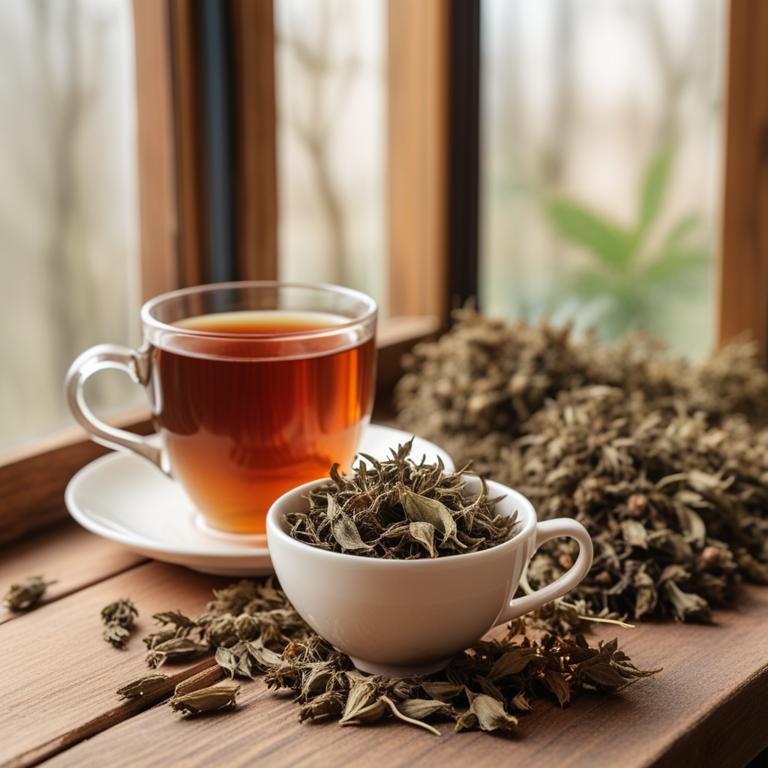
Rheum palmatum teas, also known as Chinese rhubarb, have been traditionally used to treat constipation due to their laxative properties.
The tannins and anthraquinone glycosides present in this herbal preparation help to stimulate bowel movements, reduce inflammation in the gastrointestinal tract, and improve digestive health.
By increasing the movement of food through the digestive system and relaxing the muscles in the intestines, Rheum palmatum teas help to alleviate constipation and prevent its associated symptoms.
The bioactive constituents, including rhein and emodin, contribute to the therapeutic effects of Rheum palmatum teas in treating constipation, providing relief from symptoms and promoting overall gut health.
Related Study
According to "Advances in experimental medicine and biology", Rheum palmatum teas may help alleviate constipation, as several medicinal effects attributed to the Rheum spp. include relief from constipation.
2. Senna alexandrina teas
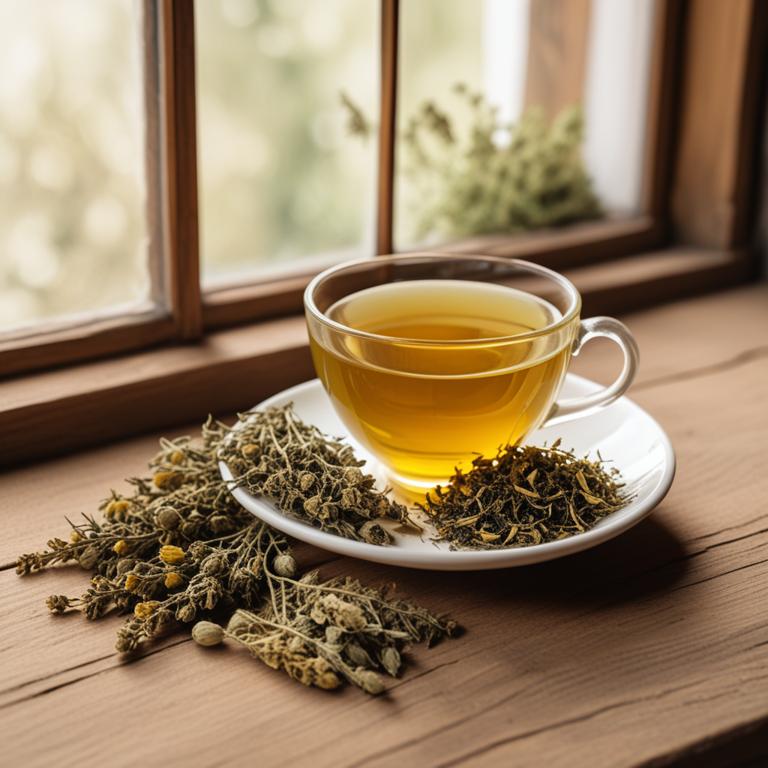
Senna alexandrina teas are a popular herbal remedy used to treat constipation due to their laxative properties, which help to stimulate bowel movements and relieve symptoms of constipation.
The bioactive constituents of Senna alexandrina, including anthraquinones such as sennoside A and B, help to increase the water content in the intestines and stimulate the movement of the digestive tract, making it easier to pass stools.
By promoting regular bowel movements and softening stool, Senna alexandrina teas help to treat constipation and alleviate symptoms such as bloating, abdominal pain, and straining during bowel movements.
The benefits of using Senna alexandrina teas to treat constipation include improved digestive health, reduced risk of complications, and a decrease in the use of artificial laxatives, making it a natural and effective treatment option.
Related Study
According to "Phytotherapy research : PTR", Senna alexandrina teas for constipation are among the most common botanical laxatives used in the treatment of constipation.
3. Foeniculum vulgare teas

Foeniculum vulgare teas, derived from the seeds of the fennel plant, have been traditionally used to treat constipation due to their carminative and anti-inflammatory properties.
The herbal preparation helps to treat this ailment by relaxing the muscles in the digestive tract, reducing spasms, and improving bowel motility.
The bioactive constituents present in Foeniculum vulgare teas, including anethole, fenchone, and limonene, contribute to its therapeutic effects by inhibiting the growth of pathogenic bacteria and reducing inflammation in the gastrointestinal tract.
The benefits of using Foeniculum vulgare teas to treat constipation include natural relief from discomfort, reduced risk of complications, and improved overall digestive health.
Related Study
According to "Oxidative medicine and cellular longevity", Foeniculum vulgare teas for constipation may be effective due to the presence of biologically active chemical constituents in the plant that exhibit antispasmodic and spasmolytic effects, which can help alleviate gastrointestinal diseases, including constipation.
4. Cassia angustifolia teas
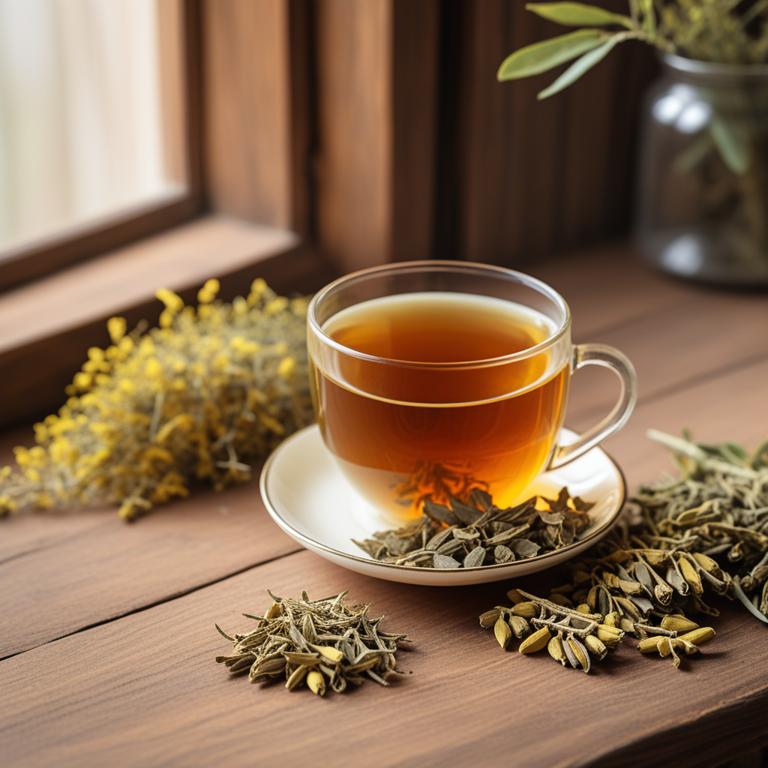
Cassia angustifolia teas have been traditionally used to treat constipation due to their laxative properties, which help stimulate bowel movements and relieve symptoms associated with this condition.
The sennosides present in Cassia angustifolia teas are bioactive constituents responsible for their laxative effects, as they work to increase the movement of the intestinal muscles and enhance water absorption, ultimately leading to a more regular bowel movement.
This herbal preparation helps to treat constipation by promoting the elimination of waste and toxins from the body, thereby improving overall gastrointestinal health and reducing the risk of associated complications.
The benefits of using Cassia angustifolia teas to treat constipation include their ability to provide relief from symptoms such as bloating, discomfort, and abdominal pain, as well as their potential to prevent chronic constipation and promote a healthier gut.
Related Study
According to "Current pharmaceutical biotechnology", Cassia angustifolia teas for constipation have been identified to possess a significant laxative potential and support its traditional use for the treatment of constipation.
5. Aloe barbadensis teas

Aloe barbadensis teas have been traditionally used to treat constipation due to their laxative properties, which help stimulate bowel movements and relieve symptoms of constipation.
The gel of the Aloe barbadensis plant contains bioactive constituents such as aloin, aloe-emodin, and aloe-erythroside, which have been shown to have anthraquinone properties, helping to soften and stimulate the intestines, promoting regular bowel movements.
By consuming Aloe barbadensis teas, individuals can benefit from relief from constipation symptoms, improved digestion, and a reduced risk of related complications, such as hemorrhoids and diverticulitis.
The benefits of using Aloe barbadensis teas for constipation treatment include natural and non-addictive relief, reduced dependence on pharmaceutical laxatives, and a gentle, soothing effect on the digestive system.
Related Study
According to "Digestion", Aloe barbadensis teas for constipation may be effective as part of a laxative preparation, as the study showed that bowel movements became more frequent and stools were softer when using a combination of celandin, aloevera (Aloe barbadensis), and psyllium.
6. Trifolium pratense teas
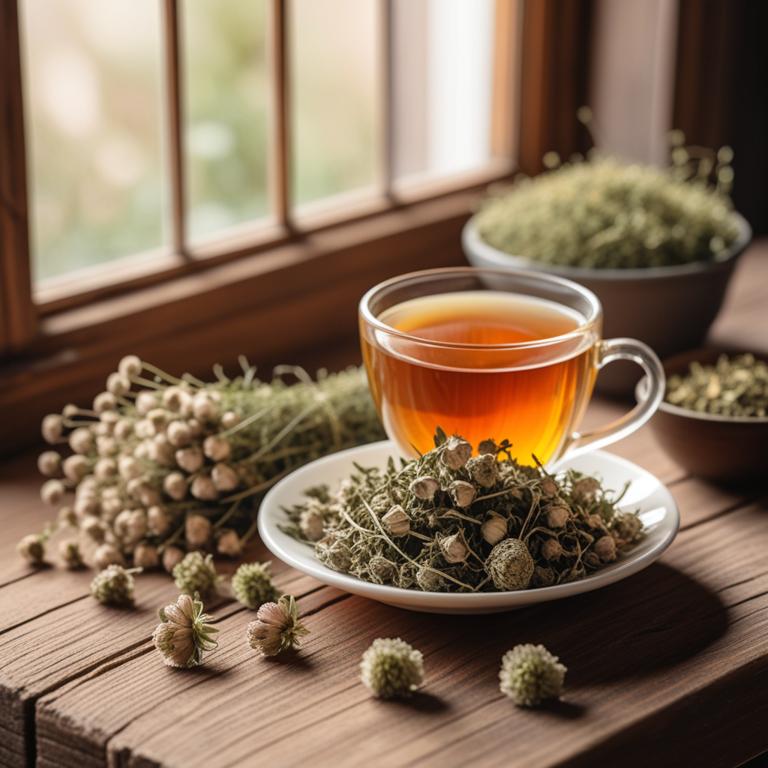
Trifolium pratense teas, also known as red clover teas, have been traditionally used to treat constipation due to their ability to stimulate bowel movements and relieve digestive discomfort.
The herbal preparation contains bioactive constituents such as isoflavones, specifically formononetin and genistein, which help to relax the muscles in the digestive tract and promote the movement of food through the intestines.
These bioactive compounds also have anti-inflammatory properties, which can help to soothe and calm the digestive system, reducing inflammation and discomfort associated with constipation.
Regular consumption of Trifolium pratense teas may help to alleviate symptoms of constipation, promote regular bowel movements, and provide relief from digestive discomfort, making it a potential natural remedy for this common health issue.
7. Cichorium intybus teas
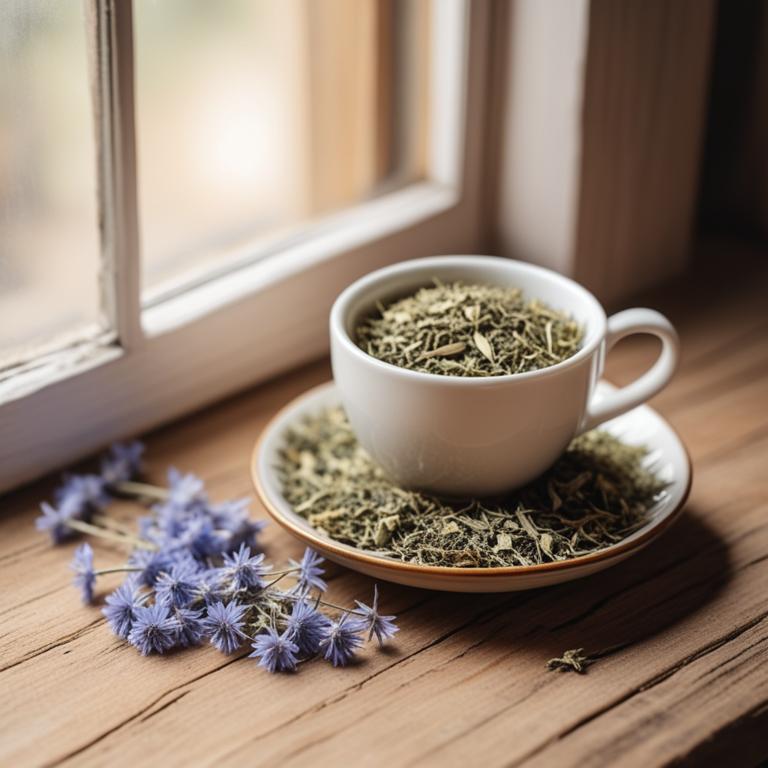
Cichorium intybus teas, derived from the leaves and flowers of the chicory plant, have been traditionally used to treat constipation due to their properties as a natural laxative and digestive aid.
The herbal preparation stimulates bowel movements and improves gut motility, allowing for the regular elimination of waste and preventing constipation.
The bioactive constituents present in Cichorium intybus teas, including inulin, chicoric acid, and flavonoids, work together to increase the water content in the intestines, soften stool, and enhance the contractions of the intestinal muscles.
Regular consumption of Cichorium intybus teas can provide relief from constipation, promote digestive health, and support the overall well-being of individuals experiencing this common gastrointestinal issue.
8. Glycyrrhiza glabra teas

Glycyrrhiza glabra teas, also known as licorice root tea, have been traditionally used to treat constipation due to its soothing and laxative properties.
The bioactive constituents, such as glycyrrhizin and flavonoids, help to relax the muscles in the digestive tract, increase the movement of food through the intestines, and reduce inflammation, thereby alleviating constipation.
Regular consumption of Glycyrrhiza glabra teas has been shown to improve bowel movements, reduce symptoms of constipation, and promote overall gut health.
The benefits of using Glycyrrhiza glabra teas to treat constipation include a gentle and natural approach, minimal side effects, and the potential to address underlying issues contributing to constipation.
9. Cassia occidentalis teas

Cassia occidentalis teas have been traditionally used as a natural remedy to treat constipation due to their laxative properties, which help to stimulate bowel movements and relieve symptoms of constipation.
The bioactive constituents of Cassia occidentalis, including anthraquinones and sennosides, play a crucial role in treating constipation by increasing the frequency and urgency of bowel movements.
Cassia occidentalis teas work by increasing the water content of the stool, making it softer and easier to pass, and also by stimulating the contraction of the intestinal muscles, which helps to move food through the digestive system.
The benefits of using Cassia occidentalis teas to treat constipation include a reduction in the severity and frequency of symptoms, improved bowel habits, and a decrease in the risk of complications associated with constipation.
Related Study
According to "Phytotherapy research : PTR", Cassia occidentalis teas for constipation may be effective due to the presence of anthraquinones, which are known laxative agents found in the Cassia plant species, although further investigations on toxicology profiles and clinical studies are needed.
10. Curcuma longa teas

Curcuma longa teas have been traditionally used to treat constipation due to their unique properties, which include stimulating bowel movements, reducing inflammation, and regulating gut health.
The bioactive constituents of Curcuma longa teas, such as curcumin, demethoxycurcumin, and bisdemethoxycurcumin, have been found to have anti-inflammatory and antioxidant properties that help to relax the muscles in the digestive tract and improve gut motility.
By promoting the growth of beneficial gut bacteria and reducing inflammation, Curcuma longa teas help to regulate bowel movements and alleviate constipation.
The benefits of using Curcuma longa teas to treat constipation include improved digestion, reduced symptoms of constipation, and a decrease in the risk of developing more severe gastrointestinal disorders.
Related Study
According to the study, the phytochemical curcumin, found in Curcuma longa, may have potential in alleviating digestive issues such as constipation, although further research is necessary to comprehensively evaluate its benefits and safety.
11. Asparagus cochinchinensis teas

Asparagus cochinchinensis teas have been traditionally used to treat constipation due to their laxative properties, which help to stimulate bowel movements and relieve symptoms of this ailment.
The herbal preparation contains bioactive constituents such as saponins, flavonoids, and phenolic acids that help to increase gut motility and reduce inflammation in the digestive tract.
These bioactive compounds work synergistically to help relax the muscles in the intestines, allowing for easier passage of stool and relief from constipation.
Regular consumption of Asparagus cochinchinensis teas has been shown to provide benefits in treating constipation, including improved digestion, reduced risk of gastrointestinal disorders, and enhanced overall gut health.